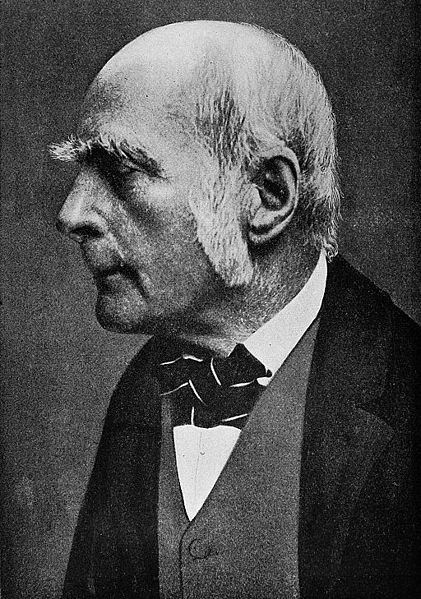Francis Galton
By Imaan Shakh, Joseph Chamberlain Sixth Form College
 What does it mean ‘to deserve greater recognition’? Do something good? Be a good person? Perhaps solve a universal problem like Plato? Or be a national war hero, like Churchill. One could argue that even creating psychological and philosophical debates is equally worthy of greater recognition.
What does it mean ‘to deserve greater recognition’? Do something good? Be a good person? Perhaps solve a universal problem like Plato? Or be a national war hero, like Churchill. One could argue that even creating psychological and philosophical debates is equally worthy of greater recognition.
Let me introduce you to Francis Galton. Otherwise known as the founding father of eugenics. He was born and raised at The Larches in Sparkbrook, Birmingham, which is ironically close to strongly South Asian populated areas such as Ladypool road and Stratford Road, and 5 minutes away from me.
Galton is arguably responsible for influencing some of the world's most devastating events. Despite being controversial, he sparked important discussions about the ethical implications of selective breeding. He conducted extensive studies on the hereditary nature of intelligence and proposed that intelligence is influenced by both nature and nurture, primarily nature which is behaviour that is caused by innate factors.
His research laid the foundation for further investigations into the genetic basis of human intelligence and the interplay between genes, society, and the environment. While we may not agree with the conclusions, it is crucial to recognize the significance of his contributions to the ongoing dialogue surrounding ethics and genetics and truly understand how Galton and his work helps us learn from history and impacts decisions made today.
During Galton’s time and beyond, inherent prejudice and racism within areas of ethnic minorities has led to a preconceived superiority where the societal poor are denigrated.
In his book Hereditary Genius which he wrote in 1869, Galton explored the connection between Darwinism and eugenics. Darwin's Origin of the Species planted the initial ideas of Eugenics in Galton's research. He believed that selective breeding could improve the genetic quality of the human population. He argued that certain racial and ethnic groups were superior to others, which unfortunately influenced various historical events, like when individuals and groups misused and distorted the concept of eugenics to justify their discriminatory practices.
In the case of the post-1870 growth of empire, some proponents of eugenics argued that the expansion of White Western European powers, Britain, France, and the Americas, was a way to spread their supposedly superior genetic traits and values to other populations. This justification fuelled colonialism and imperialism and led to the subjugation and exploitation of indigenous peoples.
Consequently, the world witnessed an increase in European influence and control over various regions around the world. Western European and American forces, driven by the belief in their racial and cultural superiority, sought to exert control over territories like Africa and Central America. They believed that Western enlightened white thought was superior and viewed the indigenous populations as ‘backwards tribes’ that needed to be dominated.
In the United States, eugenics played a role in shaping the ideology behind racial segregation. Some who supported eugenics believed in the superiority of the white race and used this belief to justify policies enforcing racial segregation and discrimination. These ideas contributed to the implementation of Jim Crow laws of the 1870s, which institutionalised racial inequality and perpetuated systemic racism.
The 13th amendment abolished slavery but, these laws enforced racial separations and discrimination, particularly against African Americans, through key components of life such as education, housing, and public facilities. These ideas by Galton profoundly and undoubtedly impacted the United States and helps people to understand the development of this issue which despite being devastating, does deserve greater recognition.
Tragically, the culmination of 19th-century eugenic thought was seen during the Holocaust, where the concept of the ‘Untermensch’ or ‘subhuman’ was used to justify the systematic persecution and extermination of millions of Jewish people as well as other marginalized ethnic minorities such as, the Roma and Sinti, and people with disabilities. These people were deemed inferior based on their race, ethnicity, or other perceived genetic traits. It was an unimaginable tragedy that serves as a stark reminder of the dangers of hatred and prejudice.
So, what does it mean to ‘deserve greater recognition’? Must one be a good person to deserve it? Or can they be someone who influenced events that help shaped the way society is today. To me, to deserve greater recognition means to be a person, place or even an idea that has been recognised academically, politically, or culturally, but has been misrecognised, under recognised or is deserving of review. Greater recognition is being interpreted in this light rather than a positive light.
Nationalists, socialists, heroes, angels and demons of history, great political thinkers, and prophets have all received recognition, or indeed praise. And this is often at the detriment of the recognition of ideas, however foul or racist they may be, of men and women in history whose ideas we deplore. These too need ‘greater recognition,’ as ignoring these ideas that we may disagree on means we cannot truly understand our state in 2024.
Photograph: Portrait of Francis Galton (Credit: Wellcome Images)


